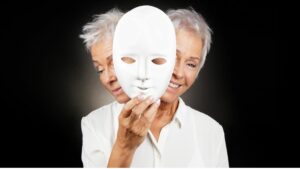Mental health is a topic that is often misunderstood. There are many different conditions that fall under the category of “mental health,” and each one can be difficult to understand and diagnose. In this blog post, we will focus on two specific mental health conditions: bipolar disorder and OCD. We will discuss the signs and symptoms of each condition, as well as how to get help if you or someone you know is struggling.
Contents
What Does Bipolar Disorder Mean?

Bipolar disorder is a mental illness that causes people to experience extreme changes in mood. These mood swings can be very sudden and can last for long periods of time. People with bipolar disorder may feel happy and excited one moment, and then feel very sad and depressed the next.
What Does OCD Mean?
OCD stands for obsessive-compulsive disorder. It is a type of anxiety disorder. People with OCD have thoughts (obsessions) and behaviors (compulsions) that are unwanted and cause them distress.
OCD can cause a lot of interference in someone’s life. The obsessions and compulsions can consume a lot of time and energy. People with OCD often feel like they can’t control their thoughts and behaviors.
OCD is treatable. There are different types of treatment, including medication and therapy. Treatment can help people with OCD manage their symptoms and live fulfilling lives.
What Are The Similarities Between Bipolar And OCD?

The two disorders share some similarities in terms of symptoms and treatment. Some of the similarities are as below:
Abnormally High Or Low Moods
Individuals with bipolar disorder experience manic episodes characterized by an abnormally elated or irritable mood. On the other hand, people with OCD tend to experience anxiety and fear.
Unusual Behaviors
People with bipolar disorder may act impulsively and engage in risky behaviors during a manic episode. Similarly, people with OCD may also exhibit unusual behaviors, such as avoidance, compulsions, and excessive hand-washing.
Social Withdrawal
People with bipolar disorder may withdraw from friends and family during a depressive episode. People with OCD may also withdraw from social activities to avoid triggers for their compulsions.
Anxiety
Both bipolar disorder and OCD can cause anxiety. In fact, anxiety is a common symptom of both conditions. When anxiety symptoms are present in both disorders, it can be difficult to distinguish between the two.
These are some of the similarities between bipolar disorder and OCD. If you or someone you know is experiencing symptoms of either condition, it’s important to seek professional help.
What Are The Differences Between Bipolar And OCD?

Bipolar disorder and OCD are two mental health conditions that can be difficult to distinguish from one another. Both disorders involve periods of intense mood swings, but there are some key differences between the two. Here’s a look at how to tell the difference between bipolar and OCD:
The Different Mood States
Bipolar disorder is characterized by dramatic shifts in mood, energy, and activity levels. These changes can last for days, weeks, or even months at a time. People with bipolar disorder may experience periods of mania, where they feel excessively happy or energized, followed by periods of depression, where they feel hopeless and low.
OCD, on the other hand, is characterized by intrusive thoughts and repetitive behaviors. People with OCD may have obsessions, or persistent and unwanted thoughts about certain things, that cause them anxiety. In order to relieve this anxiety, they may engage in compulsions, or repetitive behaviors such as hand-washing or counting.
Psychosis
One of the most distinguishing symptoms of bipolar disorder is psychosis. This refers to a break from reality, where people may see or hear things that aren’t there, or have false beliefs about themselves or the world around them. People with OCD do not typically experience psychosis.
Obsessions And Compulsions
As mentioned above, obsessions and compulsions are key symptoms of OCD. Obsessions are persistent and unwanted thoughts, while compulsions are repetitive behaviors that people engage in to relieve anxiety. People with bipolar disorder may also have obsessions and compulsions, but these will typically be related to their mood state. For example, a person with mania may have obsessive thoughts about spending money, while a person with depression may have compulsive behaviors like excessive hand-washing.
These are some differences between bipolar and OCD. If you think you may be suffering from either disorder, it’s important to reach out to a mental health professional for help. With the right treatment, both disorders can be managed effectively.
What Are The Ways To Cope Bipolar And OCD?

There are many ways to cope with bipolar and OCD. Some of these ways are:
Educate Yourself
If you or someone you know is suffering from bipolar or OCD, it is important to learn as much as possible about the condition. This will help you better understand what the person is going through and how to best support them.
Create A Plan
If you have bipolar or OCD, it is important to create a plan for how to deal with your symptoms. This may include things like making sure you take your medication as prescribed, setting up a support system, and knowing when to seek professional help.
Join A Support Group
There are many groups available for people with bipolar and OCD. These groups can provide support and understanding from others who are going through the same thing.
Take Care Of Yourself
It is important to take care of yourself both physically and emotionally if you have bipolar or OCD. This includes eating a balanced diet, getting regular exercise, and getting enough sleep. It is also important to find healthy ways to cope with stress.
Seek Professional Help
If you are struggling to manage your symptoms, it is important to seek professional help. A therapist or counselor can provide you with tools and resources to help you cope with your condition.
If you want help with bipolar and OCD, then book a consultation with our experts today through our website of Mantra Care. During the consultation, you will be able to ask any questions that you may have about bipolar and OCD and get helpful tips on how to deal with them.
These are just some of the ways you can cope with bipolar and OCD. It is important to find what works best for you and to seek professional help if needed.
Conclusion
In conclusion, bipolar disorder and OCD are two very different mental disorders. However, they can both be extremely debilitating. If you or someone you know is struggling with either one of these disorders, it is important to seek professional help. With the proper treatment, people with bipolar disorder and OCD can lead happy and healthy lives.
If you are looking for affordable Online OCD Counseling MantraCare can help: Book a trial OCD therapy session


